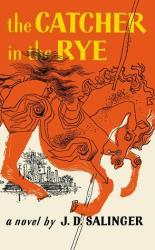
This book is about a boy named Holden's life. Holden has decided to run away from school after he was suspended. He had to figure out life because he didn’t want his parents knowing. I didn’t like this book because I found it wasn’t very interesting. The reason being is it’s not very adventurous and keeps repeating negativity throughout the book.
(Reviewer Grade. 9)
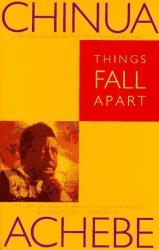
“Things Fall Apart” follows Okonkwo as he becomes a very successful man with many yams, several wives, and political power in Umuofia. The whole first part of the book focuses on his characterizing Okonkwo and showing what tribal culture was like. The author uses subtle references to Europeans to set up the main conflict of the book, European culture. Before the Europeans reach Umofia, Okonkwo accidentally kills a clansmen and is exiled. For the period of his exile, Okonkwo watches from the outside as his own village is changed radically by Christian missionaries.
Overall, I think this book is worth a read for the powerful theme, it wasn’t something I would want to read again because so much of the book was just about life in Umuofia, which was a bit mundane. Onkonkwo was also a pretty static character, there was no character development either. He just wanted to be the opposite of his father, was very strict, harsh, and closeminded. I did like the metaphors and proverbs in the book. I remember a metaphor that stood out in particular was, “Living Fire begets cold,
impotent ash.” I also enjoyed the later portion of the book where the Europeans missionaries arrive and the Onkonkwo provides a different perspective on the situation, and the theme is more clearly defined and developed.
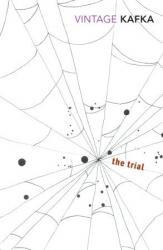
The Trial is a brilliant novel. Throughout the story the reader follows K., the protagonist, who tries to figure out what he was arrested and charged for. On his journey, K. meets several different types of people all which contribute to the book's questioning of bureaucracy and totalitarianism. Its finale left me a bewildered state, probing at the depths of existence and reality. Whether or not this feeling was a good one, I cannot tell, however Kafka's ability to use the mysteries of existentialism and expand upon them is truly amazing. I highly recommend this novel.
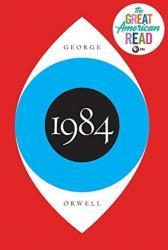
1984 introduces Winston Smith as the primary character. Smith is a middle-aged man that lives within a dystopian society in April of 1984. Being nearly 4 decades after World War II and just a couple of years after the apparent Atomic Wars, Smith lives through the totalitarian state of Oceania, where is activity is consistently surveyed. At this point, Smith attempts to relocate himself from this totalitarian state in order to put him back to normal behavior.
1984 is another novel involving a dystopia, however, it stands out for its strong character development. The premise of the story is heavily shown through the setting, as it demonstrates a controlled and tyrannical lifestyle.
Reviewer Grade: 11
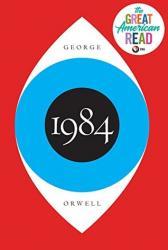
George Orwell depicts a horrific and terrifying alternate reality of 1984.
After years of war and conflict, the world is governed by three totalitarian regimes. The one that our main character, Winston Smith, resides under is ruled by the “party” and its leader “Big Brother”. The narrative follows Winston as he meets a mysterious woman named Julia, and the two begin to secretly rebel.
When I first started reading this book, I was a little bit disappointed. I had such high expectations (I think that was the problem) ,and it just didn’t live up to them. In the beginning, I thought Winston’s character was somewhat flat, and I didn’t feel a lot of sympathy for what he was living through. I thought Julia was unrealistic and a bit obnoxious. But in the second half of the book, my opinions had changed. The book becomes quite disturbing, and it makes you question what is actually real and what is just a fabrication of the party. It’s terrifying to say the least. Despite the fact that I enjoyed parts of this book, I have to rate it 3 stars because I wasn’t engaged in the first half of the narrative.
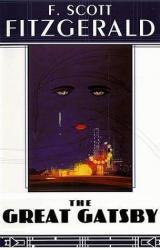
The Great Gatsby is truly a masterpiece. The Great Gatsby tells the story of Nick and his mysterious neighbor Gatsby. Gatsby is very wealthy and throws grand parties, yet has a mysterious and possibly immoral past.
Fitzgerald is a master of imagery, character development, and mystery. Set during the Jazz Age, The Great Gatsby is a fascinating commentary on life in America. I understand why The Great Gatsby is a classic and many students are required to read it. The Great Gatsby is a wonderful book that any reader from high school to adults can enjoy and learn something from.
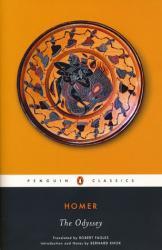
The Odyssey is an epic poem written by Homer, and it is a literary classic about two great quests. Ten years after the fall of Troy, Odysseus still hasn't returned home to Ithaca, and his house is plagued with suitors wanting to marry his wife, Penelope. His son, Telemachus, feels overwhelmed but is sure that Odysseus isn't dead. With the help of the goddess Athena, he sets off to search for his father as the reader learns more about Odysseus's previous journey and resulting enslavement. Telemachus encounters many obstacles which shape him and build his confidence by the end of the story.
Although this book is a classic and was probably very popular in ancient Greece, it is not an enjoyable book to read. There is too much unnecessary dialogue, and the plot is excessively long. Due to the old language and lengthy descriptions, reading The Odyssey is a very strenuous task.
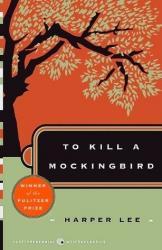
This is a story that beautifully represents society in a way few novels can. Set in Maycomb, Alabama in the early 1930's, it is told from the perspective of a 6-year-old girl, Scout, as she grows, plays, and gets into trouble with her older brother, Jem, and comedic friend, Dill. Scout's wise father, Atticus, must defend an innocent black man accused of rape; along the way Scout meets people and learns things that impact her life. Meanwhile, Scout, Jem, and Dill, are determined to learn more about their mysterious neighbor and the violent rumors that surround him--sometimes getting themselves into humorous situations--and learn something surprising. The book is spectacularly and wisely written, with characters readers will connect with, and themes that are important in all readers' lives: courage, empathy, and the power of standing up for what you believe in. Scout's sense of humor and insightful observations will make readers think and keep turning the pages for more.
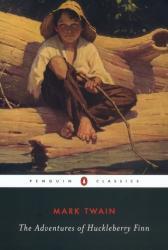
A classic piece of literature, The Adventures of Huckleberry Finn by Mark Twain is a wonderful depiction of life along the Mississippi river and times past. Huckleberry Finn is a wild, adventurous, and self-sufficient young man who finds his way along the river with an escaped slave. Stealing, superstitions, and deception all describe the journey Huck Finn and Jim take together. They encounter rivaling families, con artists, and Tom Sawyer in their attempt to get north. Mark Twain paints a vivid picture of life in the South with slavery in a way that shows that not everyone believed the same thing. A truly fun and interesting story, The Adventures of Huckleberry Finn is a book that will interest even the most disinterested reader.

A young woman dealing with grief pours out her emotions in a long emotional letter to her friend who commit suicide. I didn't quite like this book due to the long bland feel of the story. We hear her stories through her thoughts, where she rambles on about rather uninteresting things, like mice, a cat, etc. This emotional woman tends to ramble on and on about the slightest details which can make some parts feel long and drawn out. Overall, I didn't like the depressive, bland and boring mood of the story. Reviewer Grade: 7
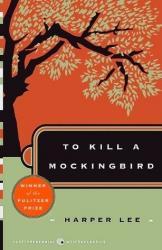
To Kill a Mockingbird is truly a masterpiece of American literature.
Along the lines of Tom Sawyer and Huckleberry Finn, Harper Lee presents us with a coming of age story set in 1930s Alabama. Scout and Jem Finch explore their hometown, get into trouble, wonder about the mystery of Boo Radley, and are faced with a great challenge when their father must prove a man to be innocent. Atticus Finch, Scout and Jem's father, is a wholehearted, unprejudiced role model who always stands up for what is right and who anyone can learn a lesson from. Overall, I understand why many schools require their students to read this book as it is wonderful literature for all generations.
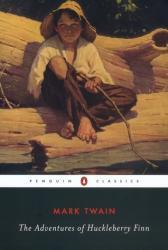
You are slowly floating down river on a warm summer night. You have no worries as you gaze at the endless stars above you. You had a simple day; catching fish to eat and lazily laying in the sun as you float wherever the river takes you. This is the life of Huckleberry Finn.
I gave this book three out of five stars because it was good however it wasn't good enough for me to consider it one of my favorite books. I appreciated the multiple conflicts, the complexity of having several conflicts at once made the book interesting. The characters were all well developed even side characters had underlying intents, and backgrounds.
Additionally, the relationships between the characters was engaging, I especially enjoyed the dynamic between Huck and Jim. Finally, I really enjoyed the internal conflict of Huck as he traveled with a slave. Huck's moral conflict from a society being raised in a society that supports slavery was striking as a 21st century teenager. Despite the positive elements of "The Adventures of Huckleberry Finn" it is only pretty good because I couldn't relate to the characters and the book lacked an emotional connection that would make it one of my favorite books. Regardless, you should read this book for to develop an understanding of the culture of the past.
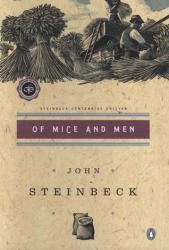
The short novel Of Mice and Men by well-regraded author John Steinbeck is heralded as a classic for a reason. The book tells the story of George and Lennie, two migrant workers trying to make a living farming in California during the 1930s Great Depression. George and Lennie are not related; they are friends who travel together to find work. Throughout the novel, they encounter new relationships and people on a new ranch. There is no denying that Steinbeck was an incredibly strong author, capable of painting a rich portrait of life in such a harrowing time of hardships; however, the sad and frankly unnecessary ending of this novel took away from my liking of it, in addition to the frank descriptions of mistreatment of people and animals, combined with the elongated plot contributed to the fact that this wasn’t a book I enjoyed. Readers need to be aware that this is a very difficult book to read, combined with mistreatment of a character with mental illness, women, and animals. Some may enjoy this novel because of the vivid descriptions and powerful characters, however, in my opinion, this book was horribly sad and not something I would not read again.
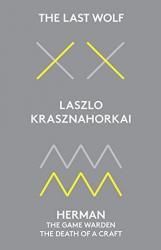
This bundle of stories is an interesting read. It contains three stories about a writer facing an identity crisis, a hunter gone mad, and a final story about the impact of the hunter’s actions. The way this story is written can be often confusing and difficult to understand for casual readers. I personally didn't like this book, due to the bland, depressing, atmosphere of the setting, and the complexity of the sentences. Often times, it is difficult to tell when the narrator is talking or when he is thinking.
Regardless, I still believe it is a fine read for readers with an advanced vocabulary. Reviewer Grade: 7
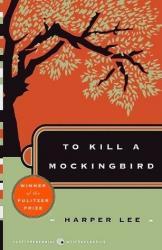
To Kill a Mockingbird, by Harper Lee, is a fantastic novel that examines the racism present in the South during the Great Depression. The book includes several remarkable instances of justice being served to the widespread prejudice present, which captures the reader. All of the character are well developed and serve well in their roles, especially the main protagonist. The entire setting is also intriguing and forms a solid foundation for the plot. Overall, I would recommend this book to anyone as it is a fascinating tale about Southern life.
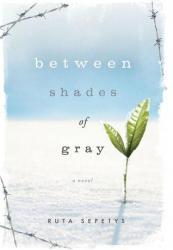
Taking place during WWII... Lina, a fifteen-year-old girl, lives a peaceful and normal life drawing and going to school but when the NKVD, better known as Soviet officers, force them to leave, adventure and chaos abduct Lina's normal lifestyle. Lina, her brother Jonas, and her mom Elena have to travel by train living with the bare minimum to survive off of. From Soviet officers forcing them to work to stealing food to survive, Lina has to find a way to outlast WWII and the capture of her family. Her main goal through all this; to find her dad. This dramatic adventure written by Ruta Sepetys will pull you off your seat.
Reviewer's Age: 15
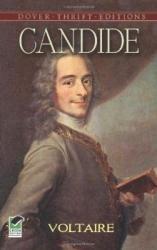
Candide by Voltaire is an interesting book about a man who believes everything that happens will be for the good of man (perverted optimism) even though he is faced with incredible suffering. I read Candide with my European Literature class and I found it a very good book to demonstrate perverted optimism and satire. Voltaire uses satire as an effective device to show the horrors of the world at his time. While Candide is mostly based in truth, it has many fictional ideas such as a country called Westphalia and the mythical El Dorado. Overall, I really enjoyed this book even though it is very weird, it still had an interesting use of language and story line.
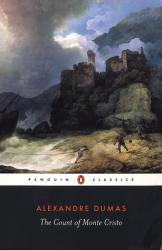
This book is amazing. The story follows the tale of Edmond Dantes and his quest for revenge against the three men responsible for his incarceration. It is a very simplistic concept, but upon reading the novel one will find a book filled with characters that live and breathe, action that is relentless, and many subplots threaded throughout the novel in intricate ways. The book, while extremely long, is entertaining all the way through. The ending is satisfying and ends the book well. I would recommend this book for anyone who is a fan on action novels, or revenge novels.
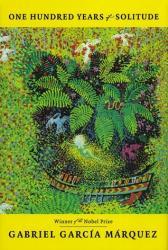
One Hundred Years of Solitude tells the tale of the rise and fall of the fictional Colombian town Macondo, and the stories of the Buendia family that inhabits the town. The novel is stellar. The characters feel alive and breathing -- they all have different motivations, desires, and weaknesses.
The reader truly begins to feel a connection with these characters as the novel progresses, and that's what makes the novel so good -- if you didn't know the town was fake, you would think it was a real place. The novel pioneered the genre of magical realism, which is a novel with a realistic view of the world that includes magical and surreal elements. The inclusion of magical realism elements in the story is what makes the book truly unique and fun to read. However, it is a very dense book, and can become very confusing very easily. If you can get past the often confusing nature of the novel, you will find a very rich and rewarding reading experience that I would recommend for anyone to read.
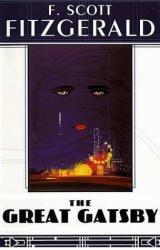
The Great Gatsby is the story that is narrated by Nick Carraway, an old neighbor of Gatsby. Taking place in 1922, Nick tells his story of when he has just moved from the Midwest to West Egg in Long Island to become successful and gain fortune as a bond salesman.
The Great Gatsby by F. Scott Fitzgerald is a exemplary book taking place during the Jazz Age. The novel was well written. It was simple, intriguing, clever and witty. Contrary to the deep story/plot line, the writing made it interesting and neither too boring nor extremely emotional. In addition to this, the overall fate upon the Gatsby, Carraway, and Daisy has a strong connection to the reader that allows them to feel the concept of tragedy.
Personally, this is one of the best books/novels. It is a great work of fiction that perfectly crafts the story and the Jazz Age of America.
Reviewer Grade: 10




